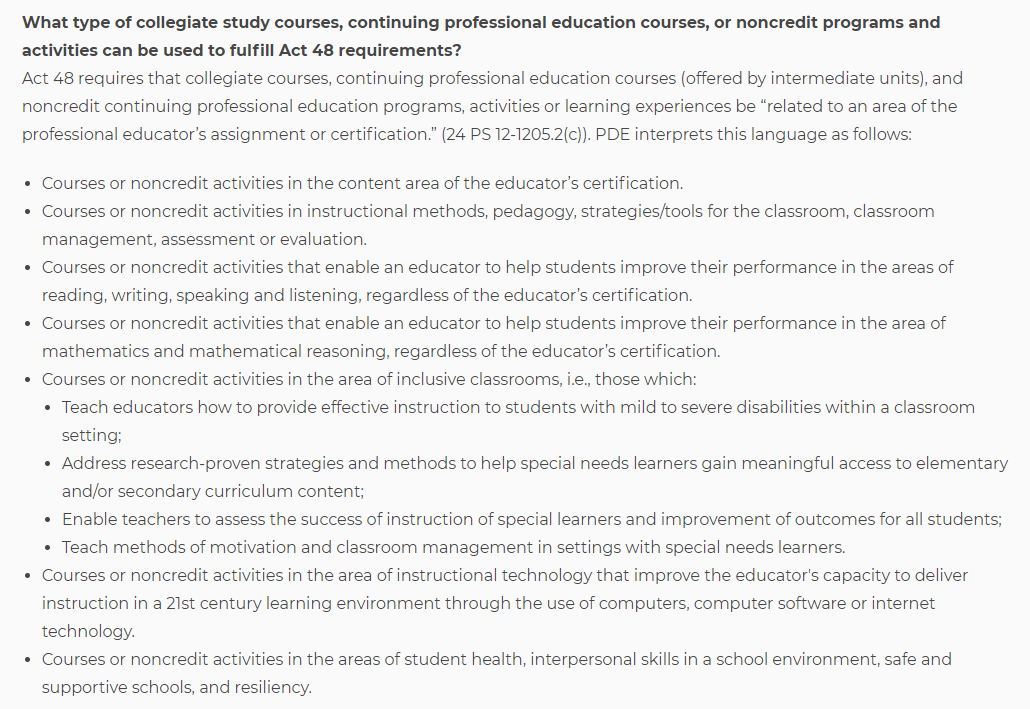Educators (Act 48)
Educators (Act 48)
We are now an Act 48 Provider. Please visit the ed2go website for a complete list of classes.
To receive Act 48 hours for credit or non-credit courses, please email elena.lydon@bucks.edu.
ed2go.com/bucks
Pennsylvania Department of Education (PDE) Act 48 Guidelines
Please note that all Act 48 hours will be issued in alignment with the PA Department of Education's Act 48 guidelines.
Credit: www.pa.gov/en/agencies/education for use of this information. Please visit the Pennsylvania Department of Educations Frequently Asked Questions page for more information.
Certificate in Teaching Adults ECPED 1505 C30
Tuition: $295.00
Instructor: Online
Where & When:
Online
2/3/25 - 3/28/25
This is your invitation to teach others in-person and join in one of the more important functions in life - passing on knowledge and skills to others. It is both an opportunity and a responsibility. Whether you want to teach others or currently teach others, in any setting, either formally or informally, this course is for you. We will give you both the fundamental and advanced information to improve your teaching. Your lead instructor is author of How to Teach Adults, the best-selling book on the subject. The e-book version is included in the course.

